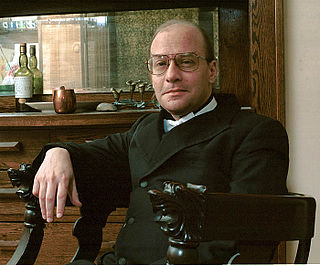A Quote by John M. Ford
The people who don't like it tend to dislike it intensely. That's unfortunate, but not surprising when one deliberately goes against audience expectations.
Quote Topics
Related Quotes
The Limits Of Control is not surrealism, but it is an experiment in which expectations are deliberately removed: expectations for narrative form, for action in a film, for certain emotional content. We wanted to remove those things and see if we could still make a film that was a beautiful film experience, with deliberately removing things many people would expect.
I just tend to admire people who go for what they believe in, like David Lynch for example, and just say what goes through their heads, and are not afraid of people not accepting them. I have no respect for people who deliberately try to be weird to attract attention, but if that's who you honestly are, you shouldn't try to "normalize yourself". It's a fine line.
If I fulfill YOUR expectations, how am I going to transform you? I have to DESTROY your expectations. I have to destroy the very mind that creates those expectations. If you come to me, never come with expectations, otherwise you will be disappointed - because I have no obligation to fulfill your expectations in any way. In fact, if I see that there are some expectations, I do things DELIBERATELY to destroy those expectations. That is the price you have to pay to be with me.
It's seriously unfortunate when an elected official of the federal government says she's [Michelle Bachmann] going to deliberately break the law. I don't know what kind of signal she thinks that sends, but if she believes that's a good signal, I'm sad for the country. I think that it's deeply, deeply, unfortunate that a member of Congress would, in effect, invite other people who feel that way to say, "Well, I don't have to do it either."





































